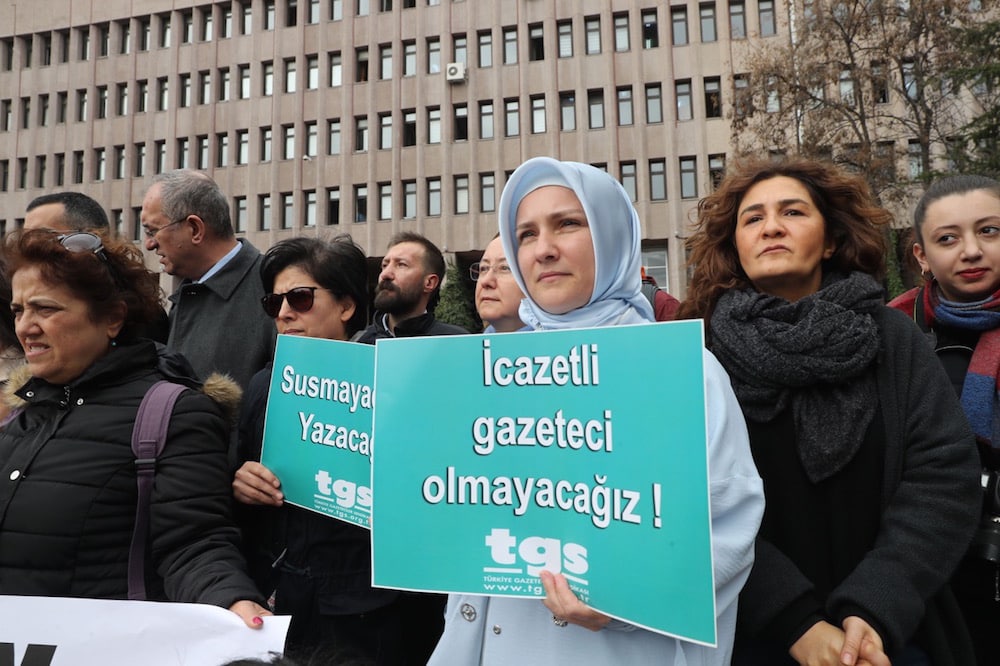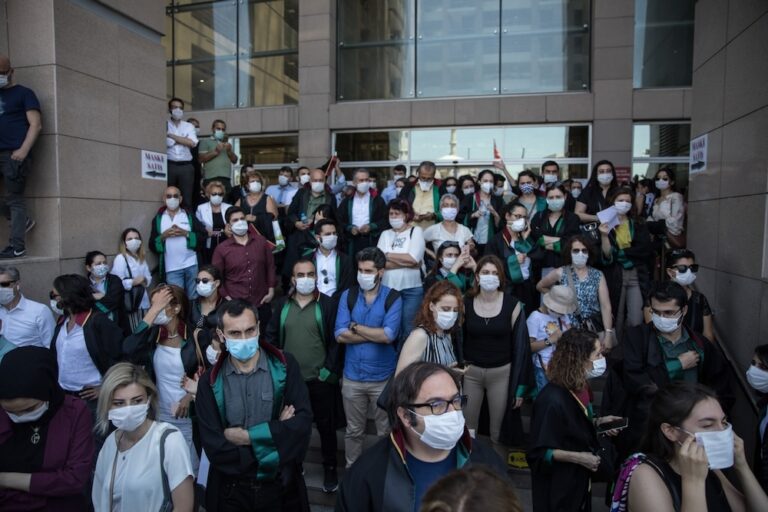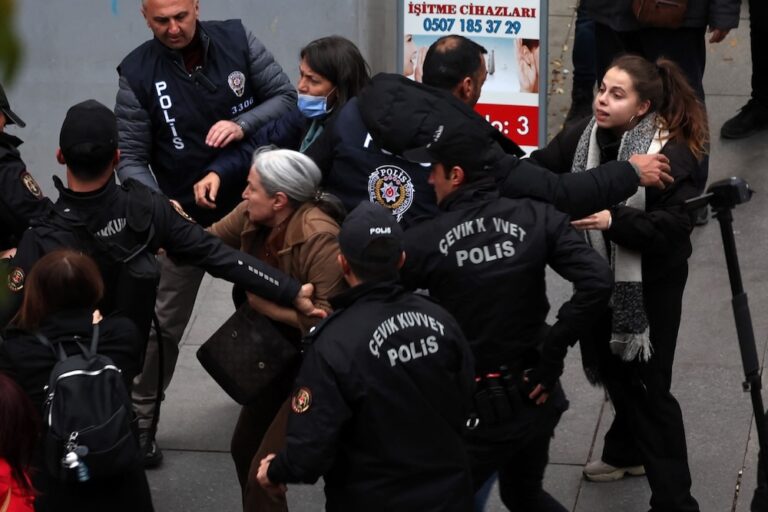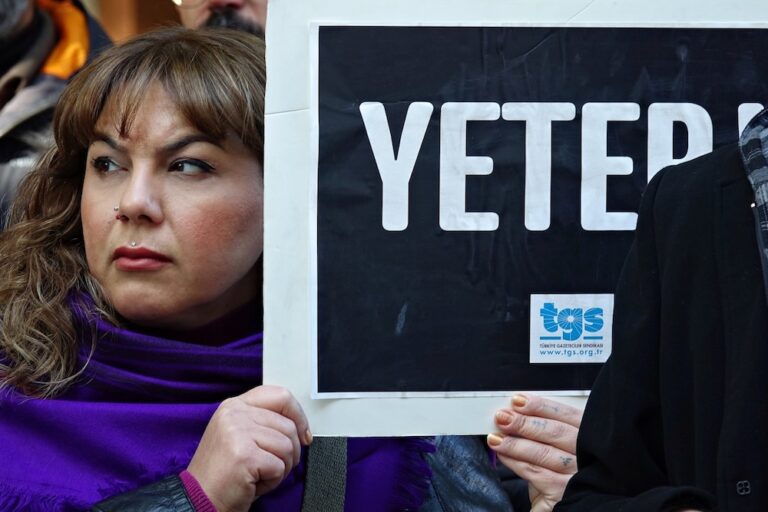“Turkey’s frantic attempts to control the narrative about its intelligence activities by detaining and harassing journalists violate the public’s right to be informed and must stop... Accusing journalists of revealing information that has already been made public makes no sense."
This statement was originally published on cpj.org on 9 March 2020.
Turkish authorities should immediately release Barış Pehlivan, Murat Ağırel, Ferhat Çelik, and Aydın Keser, and all other journalists in custody for their reporting, and drop any charges against them, the Committee to Protect Journalists said today.
On March 6, an Istanbul court arrested Pehlivan, chief editor of independent news outlet Odatv, over his outlet’s March 3 report that named a Turkish National Intelligence Organization (MİT) operative allegedly killed in Libya last month, according to independent news website Bianet. Police previously arrested two other Odatv journalists, Barış Terkoğlu and Hülya Kılınç, on March 4 for reporting on the officer’s name, as CPJ documented at the time.
Odatv’s website has been inaccessible in Turkey since March 6, according to Bianet.
Yesterday, a court in Istanbul arrested Ağırel, a columnist from the opposition daily Yeni Çağ, Çelik, chief editor of the pro-Kurdish daily Yeni Yaşam, and Keser, Yeni Yaşam’s responsible news editor, for covering the funeral of the intelligence agent, according to another report by Bianet.
The Istanbul chief prosecutor’s office gave a public statement today saying that all six journalists were accused of violating Turkey’s intelligence laws, according to Yeni Yaşam. If convicted, the journalists could face up to nine years in jail under those laws.
The officer was previously identified by Ümit Özdağ, a member of parliament in the opposition İYİ Party, in a press conference on February 26, and in news reports on February 24 and February 26.
“Turkey’s frantic attempts to control the narrative about its intelligence activities by detaining and harassing journalists violate the public’s right to be informed and must stop,” said Gulnoza Said, CPJ’s Europe and Central Asia program coordinator, in New York. “Accusing journalists of revealing information that has already been made public makes no sense. The charges against the arrested journalists should be dropped and they should be released immediately.”
Yeni Çağ was one of the first outlets to cover the intelligence officer’s death, following a statement from Turkish President Recep Tayyip Erdoğan on February 25 that “a few” Turkish military personnel had died in Libya, according to a report by local media trade union DİSK.
Yeni Çağ took down the article about the death shortly following publication, after receiving criticism and after unidentified individuals hacked Ağırel’s Twitter account, where he had shared the story, and hacked the Twitter and email accounts of the story’s author, Batuhan Çolak, according to DİSK.
In a press conference held in Istanbul today, colleagues of the Yeni Yaşam journalists called for Çelik and Keser’s release and stated that the paper’s story on the Turkish intelligence officers killed in Libya did not even identify them as intelligence agents.
Also on March 6, a court in Ankara arrested Rawin Sterk, a reporter at the Iraqi-Kurdish news outlet Rudaw, on charges of “making propaganda for a [terrorist] organization” over a tweet about the alleged number of Turkish soldiers killed in Idlib, Syria, according to a report from his employer. Sterk denied the charges, according to that report.
Turkey’s Ministry of Interior did not immediately respond to CPJ’s emailed request for comment.



